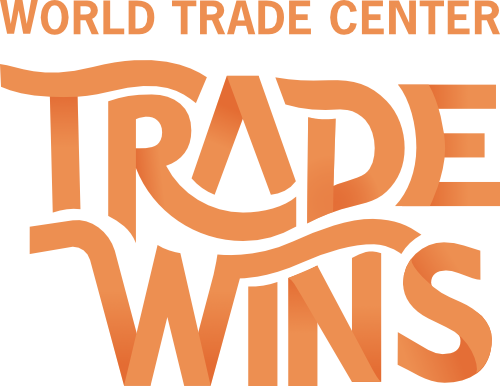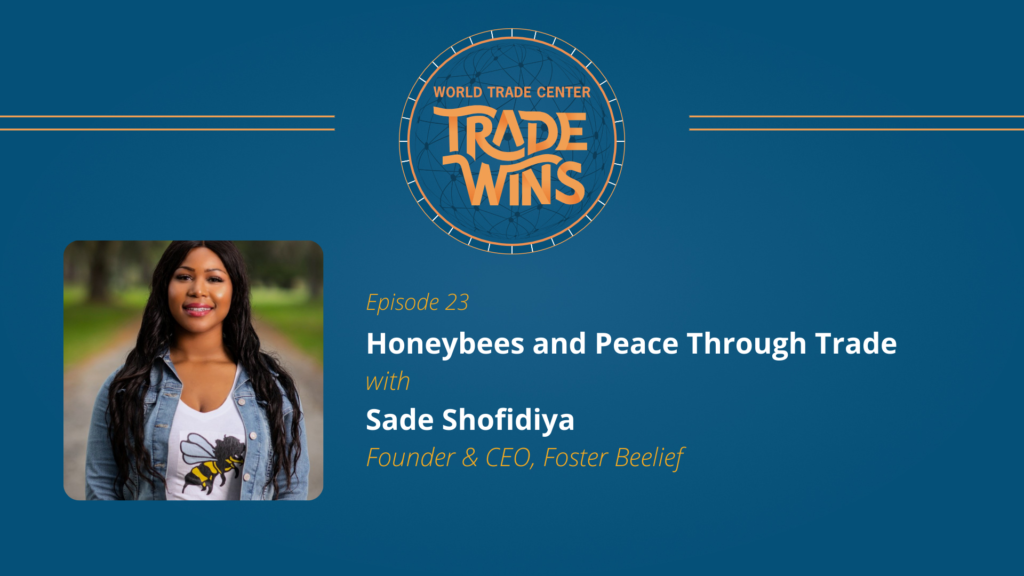Robin van Puyenbroeck 0:07
Welcome back to Trade Wins. I’m Robin van Puyenbroeck, your host, and my guest today is Sade Shofidiya. She is the founder and CEO of Foster Beelief, and I will let her explain in a few moments what this is all about, but Foster Beelief was also the winner of the World Trade Centers Association Foundation global student competition. This is a competition where the foundation recognizes young entrepreneurs, students with businesses, or nonprofit initiatives launched in support of the Sustainable Development Goals. So Sade, welcome to the program.
Sade Shofidiya 0:43
Thank you. Happy to be here. Thanks for having me.
Robin van Puyenbroeck 0:47
It’s so good to have you here. So I always ask first, who is Sade? What do you want the world to know?
Sade Shofidiya 0:53
I am a bee lover and a beekeeper – born and raised in Chicago, Illinois, and Savannah has been my second home, and hopefully my forever home. I’ve graduated from Savannah State University, their MBA program – I also studied IT and psychology. And I’m just very passionate about building environmental stewards and protecting our planet.
Robin van Puyenbroeck 1:18
These are very noble initiatives there. So you started talking about your love for bees. So tell me more. I do read now and then about the importance of bees in our ecosystem and how honeybees are being threatened by pollution, by urbanization. So maybe first of all, where does the passion for bees come from? And then maybe tell us a little bit also about what’s the importance of bees in our ecosystem?
Sade Shofidiya 1:45
Yes, for sure. So, of course, many people are not aware of the significance of the honeybees as it relates to environmental and economic sustainability. The honeybees are the key link for our food supply. Pollination contributes to one-third of our food supply, so one out of every three bites of food is the direct result of the honeybee. Without the bees, honestly, we would not have food. Even if you’re not a major consumer of vegetables and fruits. There are many ecosystems that depend on the honeybees. So like. alfalfa, for example, is a crop that has a high dependency on the honeybees pollination rate. And that’s also a crop that many livestock, especially cows, feed on.
Robin van Puyenbroeck 2:43
Wow, that’s incredible. I didn’t realize, the way you put it, every third bite is pollinated by bees. Pardon my ignorance, but where are all the bees? Because if you walk around, you don’t see many bees. Where are they?
Sade Shofidiya 2:57
That’s a really good question – their colonies have been, at least, managed honeybee colonies have been, collapsing at an alarming rate. Right. It’s normal for beekeepers, who manage colonies, to experience losses of over 40% every year. And so this is a phenomenon that we witness amongst managed honeybee colonies. And then there’s also the feral bees, right? The ones that you’re just used to seeing out and about and no one really knows where the bees are. There’s a small amount of research in the area, and the results are inconclusive. So there’s definitely a high need for solutions that would offer beekeepers, and I guess all of us, to take a better examination as to what’s going on with the honeybees to get better data points so that we can come up with a solution.
Robin van Puyenbroeck 3:58
You’re saying we don’t know what causes the bee population to decrease at these alarming rates?
Sade Shofidiya 4:04
Yes, there are a variety of factors that are attributed to their demise. But still there’s not one leading cause. So there’s lack of food and water resources, or poor nutrition because of those lack of resources that’s available for them. The stressors that’s added to the bees from transportation for the pollination services, and other poor management techniques. There are also environmental threats, right, such as extreme weather changes within the climate which causes issues and mismatches of when the bees have nectar available and when they’re actually ready to go and extract that nectar coming out of winterization. And then there are also other environmental threats such as pests and predators. They have a weakened immune system because of pesticides that are used in the areas and other insecticides that’s used in the areas where they forage. And so all these things play a part in weakening the bees. But there’s not, I wouldn’t say that one particular thing has, within empirical research, had more significance than the other factor as far as contributing to the honeybees’ demise. And so a lot of research still is inconclusive, and they don’t know.
Robin van Puyenbroeck 5:31
You definitely pass the passion test for your passion for honeybees. So where does it come from? You obviously know a lot about the bees and the importance of those little creatures in our food supply chain, in our sort of ecosystem. So how did you end up caring about bees?
Sade Shofidiya 5:50
Very good question. I was actually working on my own organic cosmetic line. And beeswax was a major input for production. And I wanted to source my ingredients as locally as possible, I wanted them to be as clean and as pure as possible, if I was able to, like grow or procure a lot of the ingredients that I used locally. So that’s how I kind of figured out like, “Hey, I wanted to care for my own bees.” Because I realized, “Hey, this is a really big input for production and beeswax was also expensive.” And now I know why: because bees are dying out. And with them learning about the bees and caring for them. I learned about their plight and connected with the savannah bee company, kind of hoping to partner for an organic cosmetic line and also understand how we could better serve the needs of the bees. And I was really inspired to be that champion for the bees. I have always been a steward for the environment. My first job out of high school, I was working at Environment Illinois, and trying to protect Lake Michigan. And so I’ve always had a passion. I’ve always gone around telling people to accept the admission and sign the petition.
Robin van Puyenbroeck 7:23
Speaking of a petition, you started with trying to clean up the lake. Sade Shofidiya 7:26
Yes.
Robin van Puyenbroeck 7:28
There’s another challenge!
Sade Shofidiya 7:30
Yes, that is increasingly becoming a challenge.
Robin van Puyenbroeck 7:35
And when you came out of college, because you were also interning at the World Trade Center in Savannah, right?
Sade Shofidiya 7:43
Yes.
Robin van Puyenbroeck 7:44
And is that around the time that you started the Foster Beelief project? Or when did it come about?
Sade Shofidiya 7:49
Yes, it was actually my supervisor who encouraged me at the World Trade Center Savannah. Her name is Kathleen Henry. And it was towards the end of my internship. So “you’ve done a great job and done so much for us. What can I do for you?” And she inquired about what my dreams and my aspirations were. And I informed her of how I’ve always wanted to start a charity, like I felt as if I needed to be a lot more established in life. So I just thought that this would be something that I do in my 40s and said, “Okay, I just like yes, I would like to have a charity, for foster children, for other environmental initiatives, then you know, had the honeybee in mind. And so I knew that from my business ventures, I wanted to because I’ve always had an entrepreneurial spirit and wanted to donate to those causes. And so she gave me the assignment. She said your task for today is to write your plan for your charity, and what it is.
Robin van Puyenbroeck 8:56
It’s good to have such a good mentor who pushes you forward.
Sade Shofidiya 9:03
Yes, I appreciate her.
Robin van Puyenbroeck 9:05
If you now look back at that time, because a couple of years went by – how was that experience? Of course, COVID came all over us in the meanwhile. So how was your experience with writing your plan, putting pen down to paper? You did launch the project, got your website, you obviously won our global student competition award, which is no small feat either. So how do you reflect back on the project? You know, when we last spoke you were talking about the different initiatives you have where you put the beehives in mainly in the Savannah area. So if you would look back at it with your original vision and planning and where you are today and also, given COVID… So how has the experience been so far?
Sade Shofidiya 9:51
Honestly, it has been an exciting roller coaster. It honestly has been a wonderful experience and I’m just amazed, looking back, I definitely did not see this path that I’m on now for myself. I thought that I would be like some neural surgeon – starting out in life, then I decided I would be an industrial organizational psychologist doing consulting. And now from here, I’m still very much doing the work with Foster Beelief. We’re establishing pollinator consumable pollinator gardens in marginalized communities. We’re doing a lot of educational outreach, connecting African Americans, disadvantaged, low-income communities, to connect them more with the outdoors, and teach them all about sustainable initiatives getting them to care for their environment and enter fields of conservation. We have our first summer camp this year.
Robin van Puyenbroeck 11:01
Bee summer camp!
Sade Shofidiya 11:03
Yes, it’s the camp of Beelief and so it’s our pilot summer camp. We’re really excited about that. We’re like a complete immersion into the outdoors. We’re exploring, of course, honey bees all about the art of beekeeping, environmental justice, and recognizing environmental injustice and how to take effective action. And within that pitch competition, the Prosperity Through Trade Competition, we talked about how our educational outreach programs, we’re really happy that that’s continuing to expand to other universities and across communities and Savannah. And now going outside of Savannah to the Liberty County area. And now kind of from there, we began an agritech company, where we began to develop technologies to be solutions for all of the theories that are hypothesized to contribute adversely to the honeybees demise, that’s benevolent. So it’s been really exciting.
Robin van Puyenbroeck 12:08
You’re diversifying your business – going into summer camps and consumer products. And that sounds like a lot of work to do there. And so you also mentioned a few times, which is I know is at the core of sort of your drive, you know, you did mention environmental justice, you mentioned disenfranchised communities. Also your background with the foster experience. So how was all that shaped how you look at the world?
Sade Shofidiya 12:36
My experiences in foster care… I did not have the best of experiences within foster care, but I do appreciate, I guess, everything that has happened to me, because of course, those things have helped to shape my worldview. I remember being in foster care, there were like, many times where, of course, I’ve had conduct issues, I entered foster care at two years old. So at a very early age, I was just trying to figure out what was going on around me and really trying to understand the world and this alternative world that I lived in. And so I was never at a foster home for more than four months, and spent probably the most of my time in group homes. And , while in those foster homes, and within those group homes, I really appreciated, and it made a major impact in my life, the alternative programs that came around, there were like different faith based organizations that came in and exposed me a lot more to Christianity, and, you know, informed me about global warming, and why it matters and what that is and caring for the earth and where our food comes from. I felt like that made a really big difference that I liked. And then even like a coding bootcamp, teaching me – I learned Java programming at a really early age and all those different things that I was exposed to, it really inspired me. I can really see that in the lens of what I’m doing.
Robin van Puyenbroeck 14:14
Yeah, true. The school of life as they say. Well, it seems like you started very early on that roller coaster, and you’re still on that roller coaster, but at least now you’re more in the driver’s seat of the rollercoaster.
Sade Shofidiya 14:28
Absolutely.
Robin van Puyenbroeck 14:29
Is that how it feels?
Sade Shofidiya 14:31
Yes, that is how it feels. Honestly, it takes some time to realize that – in life, It’s you versus you and knowing that no one is going to replace you in that driver’s seat for success. And that you definitely have a lot more control and are empowered.
Robin van Puyenbroeck 14:51
Oh, so you talk about how you’re your own worst enemy or your own best friend as an individual, that’s sort of what you’re saying. So what has been in that process? And let’s stick maybe with the Beelief project, your main challenges when you have to, let’s say, deal with yourself, in being successful – sort of what has sort of been the main challenge for you? And how have you then overcome that?
Sade Shofidiya 15:19
A really big challenge for me was getting out of my own head and impostor syndrome because I’m the first in my family to obtain an advanced degree. And technically the first in my family to graduate, graduate from college and see myself like, as an entrepreneur or as a leader, as well as like a nonprofit leader in most of the nonprofit sector. Of course, African American, and African American women, they’re on the receiving end, I guess, programs, right, and not really the ones that are initiating and the ones that are giving out and programs. And so being able to, I guess, overcome that, and then also realize that there are many instances where I’ve been in spaces where I felt as if, perhaps, I wasn’t good enough because I would be in the same cohort or like in the same accelerator programs or in the same jobs as people who have matriculated at Ivy League universities and I graduated from an HBCU and I think it was just a matter of building up a lot of confidence, knowing that I’m where I’m supposed to be, and really being grounded and realizing that life is my subjective experience and so all of my thoughts and all of my beliefs shape my day-to-day life and my future. So I began to just make myself the main character – kind of writing my own narrative and keeping a positive mindset. That helps a lot.
Robin van Puyenbroeck 17:12
That’s very inspirational, and thank you for sharing that. I think that’s a very powerful, personal story. So if you would look at other young people or student entrepreneurs around the world, what would be your message to them?
Sade Shofidiya 17:32
My message to them would be a poem that – it’s honestly I’ve heard this poem when I was in the fourth grade – and it honestly has stuck with me, like over the years. And it’s something that like, literally, I have it on my desk, I have it on my mirror on my vanity. So I would just let them know that you can be what you want to be if you try to be what you can be. And you can do what you want to do if you try to do what you can do. And that you can learn what you want to learn if you try to learn what you can learn. So if you do what you can be and learn what you must learn and do what you must do. Tomorrow, your nation will be what you want it to be, your world will be what you want it to be.
Robin van Puyenbroeck 18:22
I think that’s very well said. It reminds me of a sign I’ve always had an in where I work, which is that insanity is doing the same things over again, but then expecting different results. Well, Sade, thank you so much for being on the show and sharing all this. In closing, what I always like to ask is what can you share with us that you’ve never shared before? Could be something personal, something anecdotal, something work-related. Just something you haven’t really shared. I always catch people by surprise with this one.
Sade Shofidiya 19:03
Something I haven’t shared. I just shared that poem, but I guess I do share that with people. Something that I — a funny anecdote or just something. I don’t know.
Robin van Puyenbroeck 19:17
There must have been something funny/crazy that happened with all those bees around you.
Sade Shofidiya 19:21
Okay, something funny/crazy. I think sometimes bees are pretty funny. They’ll have personalities. So well, maybe something that I did that people don’t know is when I’m in the bee yard alone, I assign voices, like, make characters out of the bees and talk for them, doing voice. I do voice overs for all the bees.
Robin van Puyenbroeck 19:47
That’s what you share. You do voice overs and you give bees names.
Sade Shofidiya 19:50
I give the bees names and personalities and they’re talking and they’re all just doing stuff. Rhetoric is very entertaining and hilarious at the same time.
Robin van Puyenbroeck 20:00
Very well. So good. Sade’s the founder of Foster Beelief and with Foster Beelief, the winner of the WTCA Foundation “Peace Through Trade” Student Competition. Thank you so much. And I wish you a lot of continued success with the Beelief project and I will keep an eye out to make sure we do see more bees around us and who knows? One day you will expand and make your project, a national and even a global initiative. So thank you so much.
Sade Shofidiya 20:31
Yes, thank you. I’m looking forward to having one of Foster Beelief’s benevolent hives at the World Trade Centers Association.
Robin van Puyenbroeck 20:42
Okay, thank you.
Sade Shofidiya 20:43
Thank you.
Robin van Puyenbroeck 20:46
If you have any ideas for future episodes, know someone who would be an inspiring guest, or just want to stay apprised of our show, please make sure to connect with our team via email at podcast@wtca.org. Be sure to head over to podcast.wtca.org and subscribe to the show. We will see you soon.






